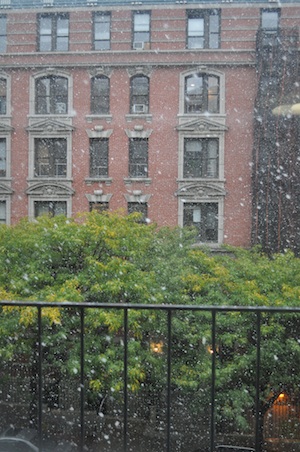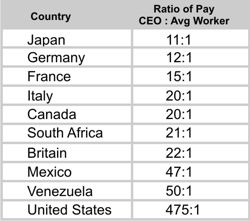It’s not sticking yet, but it’s sure coming down!

It’s not sticking yet, but it’s sure coming down!

Flame and I held a really fun wine and cheese party a while back. For it, we gave everyone a score card for rating and remembering the cups and curds that they liked. Here it is, for anyone who wants to reuse or recycle it!
In response to the frequently asked questions: The penises are for whether the cheese is erect or flaccid. The chemicals on the wine sheet are alcohol (well, a hydroxyl group) to denote fortified wines, and carbon dioxide for sparkling wines.
What is a framework for? For something as ill-defined as Sustainable Development, there are limitless approaches, paradigms, and techniques. There are also, unbeknownst to me until recently, “frameworks”. The frameworks aim to structure the understanding of the entire field, and while they speak kindly of each other, I suspect that they’re in a kind tug-of-war over the heart of SD.
On the right is the Inclusive Wealth approach, driven by some overeager microeconomists. The goal is to monetize (or at least valuate) the whole of our world’s benefits– ecosystem services, biodiversity, future generations. The proponents say that it helps us understand and communicate the worth of things, so we can protect them. foundational reading
On the left is Elinor Ostrom’s Social-Ecological Systems Framework, an explicit attempt to make all the categories of stuff-to-think-about for any situation where people hit the environment. It’s all inspired by work on common pool resources, but it’s slowly clawing its way out. foundational reading
I don’t want to take the time now to critique, but I think there are strengths of each that the other lacks, and they’re both missing out on a big swath of the world in the middle, too small for Inclusive Wealth and too big for SES.
Academic has a certain magic that lets it consume one’s life beyond recognition. This semester, I only have three classes, plus research and teaching, and yet somehow the day ends later every day.
I got my top choice for teaching, and I love it, but I don’t know if it’s worth the effort sometimes. The class is Environmental Science, which I took last year, my first exposure to much of the field. But now, weekly I’m putting together big recitation-section lectures, and I just finished the grading the two inches of paper that made their first assignment.
My classes for credit each have their charms. Geophysical Inverse Theory has already proved useful, and takes place on the beautiful Lamont campus.
Environmental and Resource Economics is usually good for a shot of ideas and a bottle of math.
Sustainability Science has half good discussions, half bad discussions, and half aimless commentary.
In other news, my work on flooding from glacial melt got accepted for a poster session at the huge AGU conference in San Francisco, in December. My program should have some money to send me there.
I participated in “Data without Borders” last weekend, which was lots of fun. My team was pretty serious, the food was plentiful, and the people nice and interesting.
Now I need to sleep. Elinor Ostrom is lecturing Sustainability Science tomorrow!
From NYT today, Henry George in 1877 said, “No nation can be freer than its most oppressed, richer than its poorest, wiser than its most ignorant.”
FDR, from Mark Fiore’s most recent video:
“We need to correct, by drastic means if necessary, the faults in our economic system from which we now suffer. We need the courage of the young.”
“These economic royalists complain that we seek to overthrow the institutions of America. What they really complain of is that we seek to take away their power. Our allegiance to American institutions requires the overthrow of this kind of power.”
“Liberty of a democracy is not safe if the people tolerate the growth of private power to a point where it becomes stronger than its democratic state itself.”
“Among us today a concentration of private power without equal in history is growing.”
I want to make a new parody bill for OWS (with normal $1 bill elements replaced with fat cats, military-industrial symbols, snoozing american dream, and surveillance cameras). Anyone have ideas for it?
Come to Zuccotti Park tomorrow (Friday) at 6am to save the Occupy Wall Street movement! Bloomberg has ordered police to clear the park at 7am, and not come back. I’ll be there– call me to meet up!
Check out Jeff Sachs’s visit to Occupy Wall Street: http://www.youtube.com/watch?v=H8svbm4WYmU
The first half is Jeff at his best, or at least channeling Noam.
Political commentators keep trying to make this about the state of the economy, but it really isn’t. It’s about the structure of the economy– a system that abuses and expends even in the best of times. I want the OWS protesters to know that they are crying with the same voice of the world poor and ecosystems everywhere– not because they’re poor, but because they’re subject to the same powerlessness.
If there’s any doubt of the absurdity of it, Flame recently sent me the handy table (from a not so good blog):

I’ve been submitting syllabi for classes to the powers-that-be, recently. The last two (the Human System Dynamics class I taught at Olin, and a “How Power Works” class) I submitted because I thought they’d be fun, but I think I’ve found one that would be much more useful.
It’s a Computational Tools class, for to-be researchers in sustainable development (or really anything at the intersection of social science and earth science). The idea is to give an introduction to all the tools (or the subset I know about) that can be at a researcher’s fingertips, from an understanding of XHTML to extract data from webpages to the basics of inversion theory. Simultaneously, the class provides a
semester-long education in the thought processes behind programming, computation, and modeling, using the various tools as both examples and building blocks.
Here are all the topics I’ve come up with, and I’m interested in any other ideas!
unix and shell scripting
GIS
techniques in programming: working with data files, data structures, algorithms, ideas of modern languages
useful Matlab toolboxes
introductory R
intermediate stata
techniques in network theory: metrics, algorithms
techniques in inversion theory
system dynamics: elements, insights
agent based modeling
xhtml for web data collection
algorithms from numerical analysis
source control and project management systems
relational databases
spectral analysis and tools from signal processing
data collections and organizations to know
LaTeX and beamer
using the econ cluster
tools from “Structure and Interpretation of Classical Mechanics”
insights from nonlinear dynamics and chaos
If it’s not designed for people in my program, I would add the following:
OLS, GMM, VAR
Optimization Problems
Optimal Control
In addition, there would be an ongoing project, where each student to chooses a field (like climate or child health) and expands a collective wiki by finding good data sources, modeling tools, and techniques used in that field.
When you talk to earth scientists, the problem is climate change, and the verdict is that life will be several percent more difficult, in a century or so. When you talk to economists, the problem is resource limits, and the prognosis is positively rosy if we get our act together, but deadline is only about 20 years. But by far, the scientists who are most concerned with (both most fearful of and most riveted by) the coming crisis are ecologists. For them, the loss of species and the degradation of ecosystems is like watching Humpty Dumpty already smashing into the ground, and knowing that no royal calvary will be able to put him back together.
One of my classes this term is Sustainability Science, co-taught between Harvard, Columbia, Arizona and Minnesota States. Last week the topic was biodiversity, and the two main points were (1) we now have plenty of evidence that it matters, and (2) we’re losing it fast. The reading I enjoyed the most was old news to the ecologists in the room: a chapter from E.O. Wilson’s Consilience. He argues that, like an aggregate Indiana Jones, society is racing toward a quickly closing hole in the wall that forms the future of our planet. If we aren’t careful, we’ll hit the wall, and even our survival will be at risk. We can apply all our technical genius to get through the hole in time, but for every pair of prosthetic legs we build, we make civilization more precarious and alienated. The challenge is to carry as much of the natural world through the hole with us.
Here’s the chapter we read: To What End? Skip the first couple pages to where it says to start reading (before that is a rant I can’t endorse).
Enjoy!
I wrote this poem in they days before my recent 30th birthday party.
Here follow the potholes, worse than curves in this lane,
A couple couplets to express the speed of this strain.We stay old too long, set on our climb to the peak,
Three decades before we learn a word to misspeak.I wonder sometimes if never we return like the fall,
One instant to reach, come up short or stall.The doubts more dazzling than any dream we could doze,
The joys of flashing buttocks and a yellow paper prose.Chasing after confusions, for a knob we can’t try,
Finding the unknowable fracture behind every loci,Too blinded by figures to see the lay of the land,
All hidden beyond lines in the analysand.But I’m sure there’s a world, for heads not to rest,
I’ve seen it in dreams, too full of wit to digest.A life that’s been kind, every moment for toasts,
Full of friends gathered round by all friendly ghosts.Nor know how to thank, or who, for this one chance,
Of thirty years gone by of blessing and abundance,Life in a dream, a planet’s psyche to heal,
All I can say is it’s sure been surreal.
I had a bunch of other clever lines and a big list of what I call “bywords” (words that end with another word to give the sentence a double meaning) that I lost in Burma. So I wrote a quick program to look for all English bywords (and then took out some of the non-useful ones). You can look at the results.